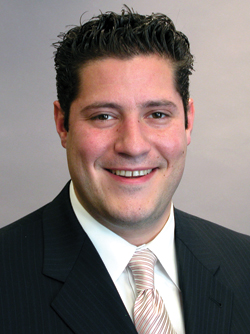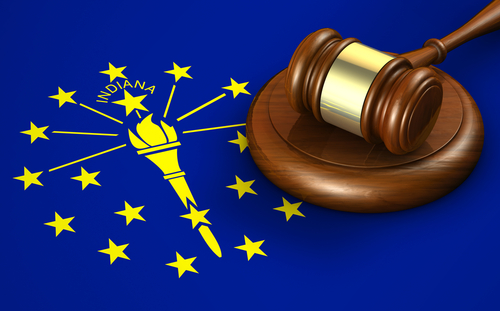Video Mentors

Christopher Esbrook
Imagine a young litigator preparing for her first oral argument in the 7th U.S. Circuit Court of Appeals. Nervous, she checks with the assigned judge on the case to ask for a few last-minute pointers.
The Chicago-based 7th Circuit Bar Association is bringing that scenario closer to (virtual) reality through the launch of its e-mentoring project. The program, which features in-depth and frank video discussions with more than 45 distinguished jurists and trial lawyers across Illinois, Indiana and Wisconsin, seeks to capture and share the bar’s institutional knowledge.
“There’s all of this wisdom and experience in the 7th Circuit bar,” says the project’s co-chair, Kirkland & Ellis associate Christopher Esbrook. “However, many of the judges and lawyers only mentor the people lucky enough to be directly around them.
“The importance of the project is to broaden the concept of mentoring and make the collective wisdom and advice available—not only to young lawyers but all lawyers in the bar,” he says.
MORE FORTHCOMING
Esbrook and his co-chairs—Beth Gaus, a staff attorney at the Federal Defender Program, and Seth Thomas, an associate in the Indianapolis office of Ice Miller—conceived the idea for the project in 2008. They plan to extend the e-law library’s collection to include video interviews with all 7th Circuit district and magistrate judges as well as prominent practitioners.
The videos, accessible only to 7th Circuit Bar Association members through a password-protected area of the bar’s website, feature young lawyers engaging judges and senior lawyers. Their 30- to 75-minute question-and-answer sessions are edited into segments that range between three and 15 minutes and are categorized by judge as well as topic.
“The judges were very forthcoming,” notes Esbrook, who initially worried that practical advice would be overshadowed by ephemeral, general guidance. Instead, the videos provide anecdotes and tangible examples of best trial practices that span decades of legal work, as well as specific tips for written briefs, oral arguments and courtroom etiquette.
For instance, Circuit Judge Diane Wood cautions lawyers in her courtroom to put aside apprehension and acknowledge strong arguments from opposing counsel. “A really good brief really engages in the really tough points that the other side is raising,” Wood says.
In other courtrooms, it’s sometimes best not to say anything at all.
“We should not be so involved with our cases and our clients that we lose our own humanity and our knowledge or belief of what’s right and what’s wrong,” says Circuit Judge William Bauer in another video segment. “When it’s appropriate, keep your mouth shut.”



